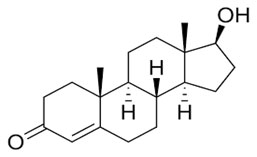Unlike women, who are typically more diligent about their regular health care maintenance, men have a tendency to avoid going to the doctor; and care for their medical needs themselves. They usually delay and defer seeking health advice until later in life, once they are no longer able to manage their concerns or conditions on their own.

What are the pertinent issues in men's health currently?
- Dietary health/health maintenance
- Cardiovascular disease
- Bone and joint health
- PSA and prostate cancer
- Benign prostatic disease
- Erectile dysfunction(marker of vascular disease)/higher risk of heart attack and stroke.
- Low testosterone or Andropause
In recent years, testosterone has garnered much attention in the media. In this blog, we will
1) discuss the importance of testosterone in men’s health and
2) implications of having an imbalance of this essential hormone.
Testosterone is an essential hormone in both men and women. In men, low testosterone is common but not normal. Testosterone decline can begin as early as 30 years of age. In the average population, testosterone levels are getting lower every year.
Why is it important to talk about testosterone? What are the consequences of lower testosterone levels?
Here are some of the main functions of testosterone in the male body:
- Male sexual function: libido and interest in intimacy
- Anabolic effects: building muscles, brain, bones, blood vessels
- Hematological effects: acts on the bone marrow, increasing hemoglobin/ RBC-thereby oxygen-carrying capacity)
- Bone and metabolism effects: impacts bone health & incidence of fractures/decreasing fractures in elder populations
- Mood and cognitive effects: stabilizes emotions, mental clarity, and motivation
- Insulin and cardiovascular effects Diabetes, hypertension, lipid abnormalities, heart attack and stroke
- Testosterone has vasodilatory effects: dilates the blood vessels improving blood flow; acts as an antihypertensive agent.
Testosterone has direct and indirect effects on every organ system in the male body. Androgen Deficiency in Aging Males (ADAM) is a condition that is being increasingly clinically present. However, only 5% of affected males with low testosterone are being treated for the condition. Fortunately, potential benefits with treatment can be significant.
What is Hypogonadism?
Hypogonadism occurs when the gonads (sex organs) fail to function as they should. In males, the major consequence of this is low testosterone (Low T). Low T is a crucial factor in patients with chronic disease states (diabetes, congestive heart failure, hypertension, coronary artery disease, cancers, lipid abnormalities etc). In other words testosterone deficiency is quite commonly seen in many chronic disease states and metabolic conditions. Especially in men with metabolic syndrome, proper management of testosterone deficiency is crucial.
A Shift in Demographics:
Every day in the United States, more than 15,000 people become 65 years of age or older. As life expectancy continues to increase, so does the demand to care for the needs unique to an aging population. Despite this growing elderly male population, more than ever are men eager to be active and live their lives to the fullest; physically, mentally, and emotionally. In addition, they are prioritizing their relationships and wish to be intimate. Despite this, we continue to see more and more patients in our practices that are aging with low testosterone and are unable to fulfill these desires. For aging men, testosterone replacement is important for metabolic health and optimal sexual function.
Implications of Low Testosterone
- Greater risk of cardiovascular disease
- Strong association between decreased testosterone and type 2 diabetes
- Correlation between Low T and cognitive dysfunctions such as decreased memory and Alzheimer's disease
- Decreased lean body mass (muscle and bone)
- Increased visceral body fat
For men who are symptomatic from low testosterone, testosterone replacement therapy (TRT) is a safe and effective treatment to alleviate symptoms while addressing the root cause.
This is Dr. Kota’s general overview of testosterone. Please look forward to the next blog in this series, where Dr. Kota will delve deeper into common presentations of Low testosterone, how low testosterone is diagnosed, and more information about testosterone replacement therapy.

